Sanctions Against Russia: Farcical Tantrums from US and EU?
It has been one of the more absurd spectacles since the Russian annexation of Crimea. Western powers, centered around the European Union and the United States, have been waging a sanctions war against Moscow. Both the targeting, and effect, loom as question marks before governments who have been caught off guard by the speed of Moscow’s actions, and the validation of the referendum’s results.
Sanctions form the policy arm of some countries, notably those keen to punch a hole in the trade and economic worth of the target state. The US, according to Geoff Dyer, has 24 different sanction programs in place, ranging from Côte d’Ivoire to Syria, and targeting companies involved with “conflict” diamonds. But Dyer makes a vital observation: sanctions regimes, in general, do not work. They are shots in the dark, blunt instruments. Their targets are sketchy, their results only devastating to the very populations that should not be effected. There are, in short, an elitist’s dream, leaving the elite to thrive while others suffer.
Only in the Suez Canal crisis of 1956 could it be said that sanctions nudged occupying armies from a seized territory. For those a bit short on the history of that operation, a British-French-Israeli mission captured the Canal after Egyptian President Gamal Nasser decided to nationalize it. This precipitated a colonial reflex and broad Soviet influence to bear in the region.
United States President Dwight Eisenhower, even as he was rebuffing Soviet threats of intervention, trained his ire on the British with threats of blocking international loans. France and Israel received similar threats. By December, the withdrawal was initiated, and Anglo-French colonialism faced some rather stern writing on the wall.
The sanctions against the Russians on this score have proven almost farcical. The lists consist of various members of Putin’s inner circle – Russian officials and business contacts who have been barred from traveling to the US and have their assets in the United States frozen. (The clever ones had already removed them.) Executive Order 13661, signed by President Barack Obama on March 16, “authorizes sanctions on, among others, officials of the Russian Government and any individual or entity that is owned or controlled by, that has acted for or on behalf of, or that has provided material or other support to, a senior Russian government official.”
Similar measures have been introduced by EU countries, targeting some 21 Russian and Crimean politicians in terms of travel bans and freezing assets. Germany, much to its economic detriment, has taken the lead. It almost had to, after its Foreign Minister Frank-Walter Steinmeier found himself fanning the flames of anti-Yanukovych dissent in Kiev. For the Merkel government, there could be no turning back.
Some Russians have even volunteered to be added to the list as a measure of patriotic rebuke – the joke is on Washington and its allies. There is even something to be said that such a sanctions regime, given Russian-Western ties, will prove detrimental to all parties concerned, giving a real round robin bruising.
Russian politicians are making prodigious amounts of hay from the actions. Deputy Foreign Minister Sergey Ryabkov suggested a formula:
“What can we advise our American colleagues to do? Spend more time outdoors, do some yoga, have healthy food, probably, watch more comedies series on TV. That would be better than working yourselves and others up, knowing that the train is already departed and that no tantrums, crying and hysterics can help.”
The Borowitz Report at the New Yorker jumped on the opportunity with a satirical jab on freezing the Russian President’s Netflix account. “‘Unless and until Mr. Putin calls off the annexation of Crimea, no more ‘House of Cards’ or ‘Orange Is the New Black’ for him,’ Mr [John] Kerry said. ‘The United States will not stand by and reward the annexation of another sovereign nation with a policy of streaming as usual.”
The sanctions regime has also run into snags. They are not popular among members of the US public – a Reason-Rupe poll shows that only 31 percent of respondents had any stomach for them. In an instrumental way, they will restrain citizens from dealing with an entity or property, either majority-owned or controlled by any of the targeted individuals (Reason, Apr 4). As Alexis Rodzianko, president of the American Chamber of Commerce in Russia observed, “Everyone is sitting with their lawyers and wondering what to do and how to behave.” The lawyers are truly getting their value on this one.
Sanctions experts, for example, are deeply involved in what will happen when pop singers Miley Cyrus and Justin Timberlake perform at the Hartwall Arena in Finland. The pickle all parties have found themselves in lies in the ownership of the venue. Three of those in Putin’s inner circle have stakes in the concern.
Space cooperation between the powers has also run into the sanctions freeze. Imposing sanctions on Moscow is not going to prevent Washington from requesting the use of Soyuz rockets to get to the International Space Station (ISS). Since 2011, when NASA concluded its final Space Shuttle flight, the US has heavily relied on the rockets as a means of conveyance to the ISS. NASA forks out in the order of $70.7 million to the Russian space agency Rosaviakosmos per seat on a Soyuz capsule. All parties, notes Marco Cáceres of the Teal Group, are happy: Rosaviakosmos gets some cash and NASA gets to have its astronauts on a space station that cost the US tax payer $100 billion.
Instructions have been given to American astronauts to have minimal contact with their Russian colleagues – no gossipy chit chat, sharing cups of sugar. No fraternizing in such dangerous times. The situation is proving to be badly comic. NASA Administrator Charles Bolden, before a House of Representatives Space Subcommittee hearing on March 27, suggested his own bit of cosmic deterrence: should Moscow refuse the US access to the station, “the partners would probably have to shut the space station down.” History is now returning to the fold of farce, where it so often mutates and develops.
The final measure here is that Putin is the one laughing in this sea of Ukrainian torment. Territory has been taken and now lies firmly in the bosom of Russia. This is not to say that Russia has not had its fair share of problems. Invasions, even near bloodless ones, are never free. But the chances of the return of Crimea in the near future have narrowed to the barest sliver. As the Onion would claim, impersonating Putin, “thank you… for being super cool about all of this.”
Editor’s Notes: Caricatures one, three and five by Donkey Hotey. Photographs two, four and nine from The White House photo-stream. Photograph eight by Jonathan Davis.
Related Articles


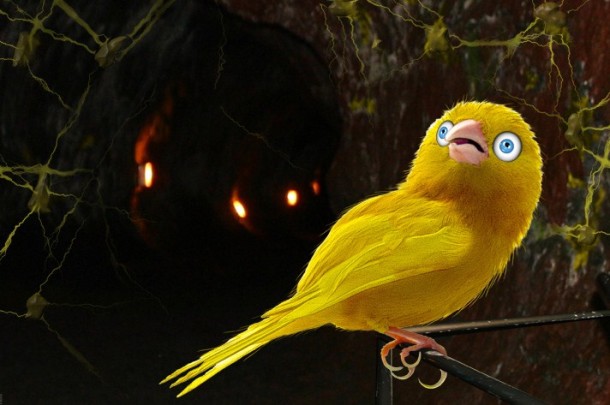
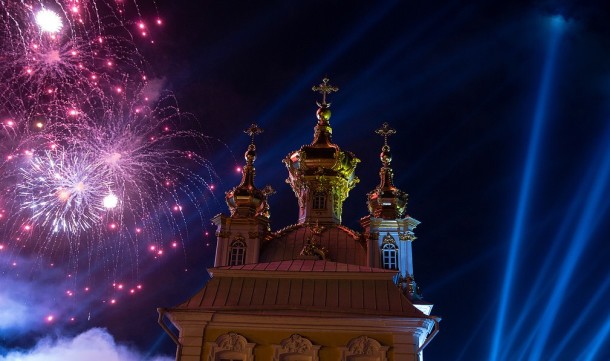

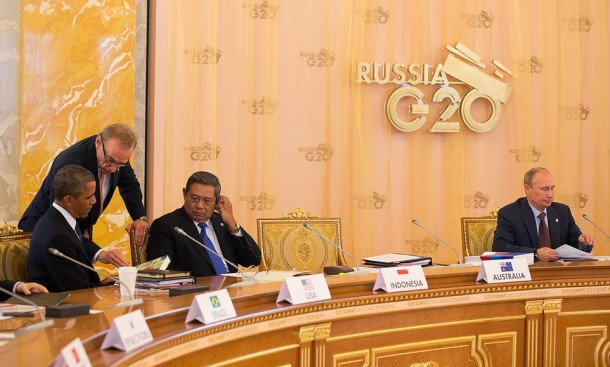
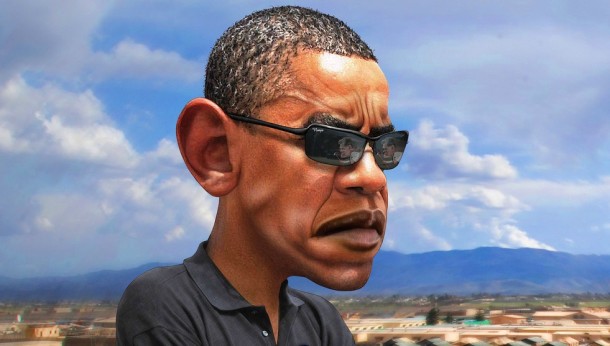
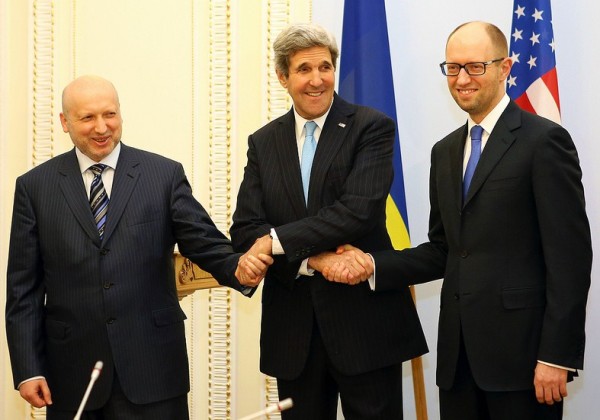
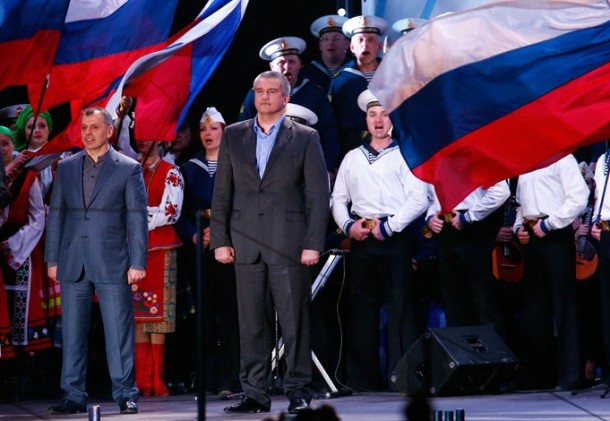













You must be logged in to post a comment Login